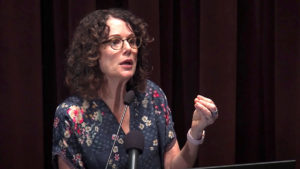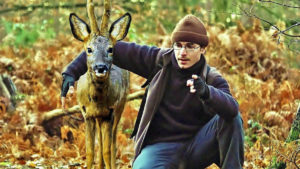Back in the last century, “putting the cat out” was a definite thing. You might remember the excellent zeugma from Flanders & Swann’s Have Some Madeira, M’Dear: “he hastened to put out the cat, the wine, his cigar and the lamps.” Cats across the country were shoved out the back door to roam, like Ted Hughes’s tomcat, “nightly over the round world of men”. We saw cats, perhaps, more as they see themselves: as resilient, free-roaming predators, at home in the world.
No longer. When my wife recently accidentally left one of our two new cats outside overnight — she found it mewing pitiably at the kitchen door in the morning — she was racked with guilt. I hunt the house to make sure they are safely indoors before turning in of an evening. My mind roams to images of my cats being torn to bits by the urban foxes that slink along the fence, of their being scragged after accidentally invading the territory of a local tom (that happened to my old cat, and the vet’s bills were horrendous), or… of worse.
Our digital culture is saturated with cat adoration — the small portion of the internet not devoted to pornography or political hate-speech is mostly taken up with pictures of cats. But it’s also blooming, like squid-ink, with a related anxiety — that of cats as the objects of malice and cruelty. Rather than being independent creatures, cats now occupy a peculiar position in our minds: we think of them as (God help us) “floofs” and “fur-babies”, cuddly creatures utterly dependent on us for protection; but also as being hard to protect because, well, they’re cats. Unlike dogs, they go where they like and do what they like. It’s a recipe for paranoia.
And where there’s paranoia, there’s a buck to be made feeding it. ITV’s recent How To Catch A Cat Killer told the story — an easy heartstring-tugger for the likes of me — of a spate of cats being stabbed in a quiet close in Brighton, and of the Facebook group of local cat-lovers which was set up to warn other owners of the danger, and even ended up helping to track down the culprit. Where vigilantes, in the traditional Hollywood account of it, tend to be flint-faced, damaged, solitary men with gravelly voices and an unsmiling sense of purpose (think Charles Bronson, Jack Reacher, Batman, Rorschach or The Punisher), the acceptable real-life face of them is now a mildly out-of-shape middle-aged cat lover in a sensible jumper, specs illuminated by the glow of a last-generation laptop.
Audiences eat this stuff up. This show was very obviously a low-stakes UK reprise of 2019’s surprise Netflix hit Don’t F*** With Cats, which followed an ad hoc group of Facebook friends tracking down a sicko who posted a video of himself suffocating a pair of kittens to death. Their collective digital sleuthing — every pixel was combed for clues as to the killer’s location, from soft furnishings to plug sockets — closed in on a Walter Mitty character called Luka Magnotta, a Canadian porn actor and wannabe model who had created an online persona for himself as fabulous as it was fictitious. Far from being a harmless weirdo, though, Magnotta showed all the signs of psychopathy — and went on to kill a human being before the police caught up with him.
The villain of ITV’s show had a bit less of Tom Ripley about him. He was a nightclub bouncer known to his colleagues as “Creepy Steve”, and though he stolidly denied the cat-killings in the face of all the evidence, he didn’t show any great flair as a master-criminal. He was clearly caught on CCTV, pretty early on, stabbing a cat. He had a knife in his flat contaminated with cat hair and blood. His mobile phone placed him at the location of 14 of the attacks. And his internet search history was full of things like “Dog killing cat”, which in the context is the sort of thing that tends to raise the long eyebrow of the law. Moriarty, at least, would have known how to use Safesearch Mode while planning his next heist.
Still, a happy ending in both cases for the cat-loving forces of good. The online vigilantes in both these documentaries showed every sign of being responsible and cautious about what they did: they did everything they could to get the police involved. And their discoveries were in some cases genuinely helpful. It took a Brighton cat-lover to obtain the CCTV footage of Creepy Steve by following a trail of blood back to the scene of the killing; something that hadn’t apparently occurred to the police (busy as they no doubt were solving “proper” crimes). Funny, though, that we’re more inclined to give vigilantes a free pass when it comes to cats. Going after cat-killers online, fine: going after child-molesters, not so much (let’s not forget the innocent paediatrician hounded out of his house by concerned parents a few years back).
Pet cruelty seems to hit a sweet spot: it’s at once deeply emotive and, for the most part, below the level of the sort of thing that the police take an urgent interest in. Cats are low-level crime — in the Brighton case, the cat-killer had to be prosecuted for offences against property rather than cruelty to animals because there’s a far higher possible custodial sentence for the former than the latter. The law, literally, cares more about cats qua property than qua living beings. So why not get citizen detectives involved?
The grisly history of serial killers might be one reason why not. Many if not most of them start out by torturing animals. Luka Magnotta was a classic example: like Ed Gein, he started on cats and moved on to people. Magnotta identified and threatened one of his principal pursuers, Deanna Thompson: he posted taunting videos of the casino where she worked. That is a bit yikes, as they say online. Creating fresh crimes, and making more work for your overstretched local bobby, by getting yourself killed is not anyone’s vigilante dream.
And there, again, we return to what documentaries like these say about our collective anxiety about cats. The stakes are at once low, and high. We infantilise them, much against their own nature. We pour into them — into their free-roaming nature and their vulnerability — our fears of an outside world that is more dangerous than our keyboard-tethered selves would quite like to look at face-on. And we fantasise, too, about being able to reach out and right wrongs in that outside world from the safety of our laptops. Prevention is better than cure, and documentaries be damned. Let’s lock the doors at night, and make sure the cats are in.
Disclaimer
Some of the posts we share are controversial and we do not necessarily agree with them in the whole extend. Sometimes we agree with the content or part of it but we do not agree with the narration or language. Nevertheless we find them somehow interesting, valuable and/or informative or we share them, because we strongly believe in freedom of speech, free press and journalism. We strongly encourage you to have a critical approach to all the content, do your own research and analysis to build your own opinion.
We would be glad to have your feedback.
Source: UnHerd Read the original article here: https://unherd.com




